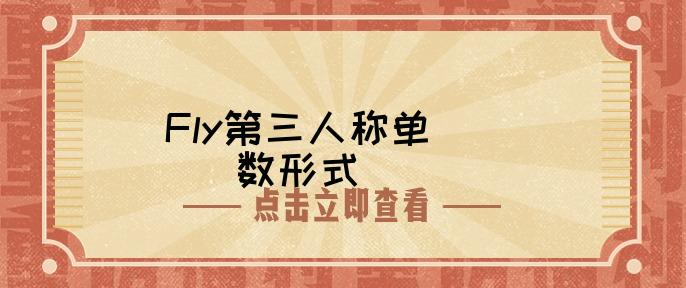 2025-05-25 20:40:18
2025-05-25 20:40:18
 次阅读
次阅读

fly的第三人称单数形式是flies。在英语语法中,动词fly表示飞行,其第三人称单数形式需要根据主语的人称和数来变化。当主语是第三人称单数(如he, she, it)时,动词fly需要变为flies。这种变化是英语动词的常规变化规则之一,用于保持句子的一致性和语法正确性。
The term 'flies' has a rich tapestry of meanings, particularly when considering its third-person singular form from the verb 'fly'. As a noun, 'flies' refers to the space above a stage where scenery is suspended, known as the fly space or the fly area. This is a crucial component in theatrical production, allowing for dynamic set changes and special effects. When 'flies' is used as a verb, it encompasses the act of flying or soaring through the air, whether by natural means or via aircraft and spacecraft. This verb form captures the essence of movement through the skies and beyond, into the realm of space travel.
1. "This was no fly-by-night affair."
This phrase suggests that the situation or event being discussed was not a fleeting or temporary one, but rather something of substance and duration.
2. "His fly is undone."
Here, 'fly' refers to the fastening on a pair of trousers, indicating a wardrobe malfunction that needs to be addressed.
3. "Wet-fly fishing"
This term describes a method of fishing using artificial flies, mimicking the appearance of insects on water to attract fish.
4. "Very few planes fly with 100 per cent loadings."
This statement highlights the rarity of aircraft flying at full capacity, often due to various factors such as passenger demand and operational efficiency.
5. "Fly-by-night operators who fail to complete jobs"
In this context, 'fly-by-night' is used to describe unscrupulous business operators who do not fulfill their commitments, leaving projects unfinished or customers dissatisfied.
©本文版权归作者所有,任何形式转载请联系我们:xiehuiyue@offercoming.com。